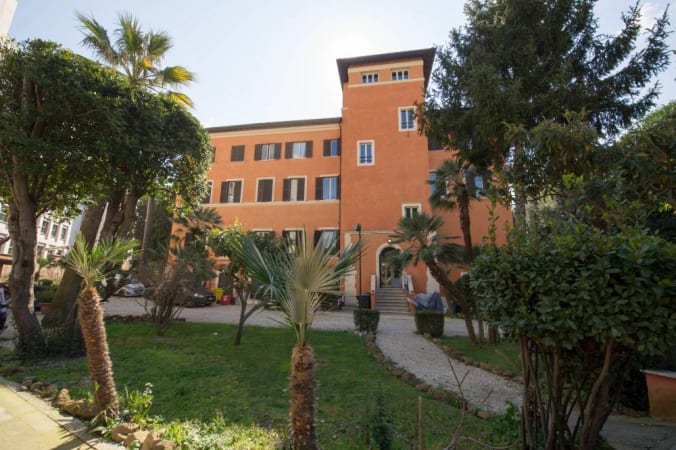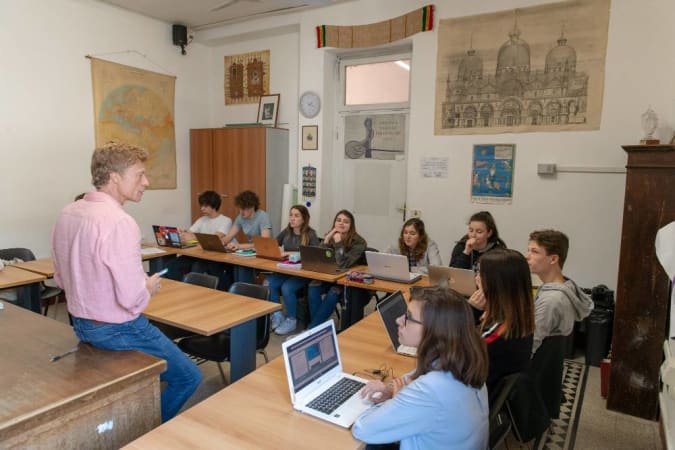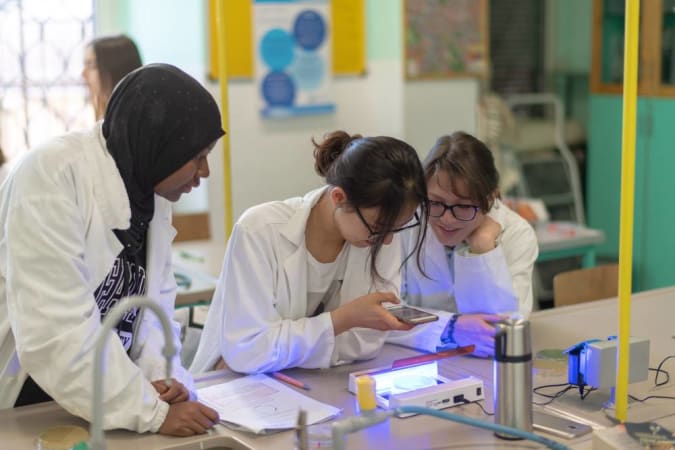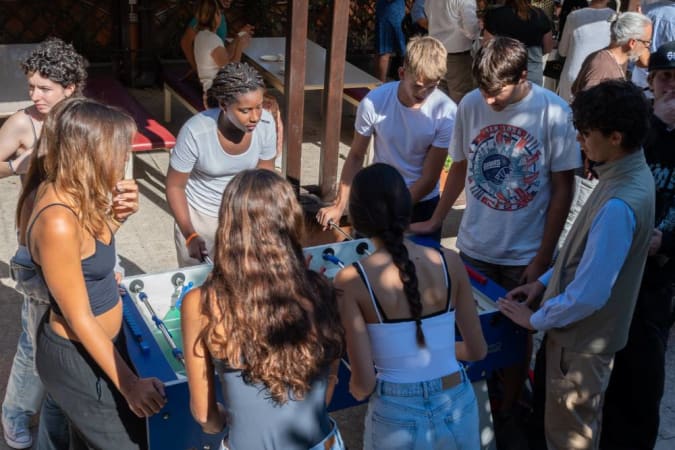
How we see St. Stephen's School, Rome
St. Stephen's School was founded by a group of North American educators who took the American independent school as a model, though with the intention of superseding it, literally creating a “pace-setter,” in their terminology, that other schools would seek to emulate. Notably, it was non-denominational, firmly set within the liberal-arts ideal, offering a course of study toward educating students to take active part in civic life, locally and globally. The founders chose Rome because of its stature in world history and its proximity to some of the prime moral, artistic, and political antecedents of western life. Unusual for the time, it would also be an international school in the sense that we think of it today, one where students come from around the world to grow and learn together, gaining a sense not only of their talents, but also how to deploy them in international settings. In 1975 it became the first school in Italy to adopt the IB. Today the enrollment remains intentionally small, with a high student-instructor ratio, and is attractive to students who share a dedication to learning in a truly international and intercultural environment. The facilities are as good as it gets, sparkling in every way, located in a villa—one that itself sympathetically reflects the architectural heritage of the region—steps from a number of UNESCO World Heritage Sites, including the Circus Maximus, Roman Forum and the Colosseum. Instructors also arrive from around the world, all bringing a close experience of the IB and a passion for what it can offer. A majority of students live locally, though boarding is available, and the school is rightly a draw for students arriving from IB programmes in the US and Canada. Throughout, St. Stephen's continues to realise the founders’ desire to create an institution that would be more than just another school, one that would exemplify the cosmopolitan ideal and serve as an important model of academic excellence.
Compare with:
How St. Stephen's School, Rome sees itself
"Give your child the gift of Culture, Academics and Independence with a year or more abroad at St Stephen's School in Rome. Founded in 1964 and the first IB school in Italy, our enviable position in the Historical Center enhances signature courses and a wide range of arts, clubs and sports. Our Boarding and Trips Programs allow exploration of Rome, Italy and Europe. A rigorous, personalized Academic Program sees our graduates obtain both the IB Diploma and American HS Diploma and go on to top Universities worldwide."
"As we maintain the highest standards in all areas, both in and out of the classroom, we use the past to inform our learning, we encourage a passion for thorough knowledge, and we provide challenging intellectual opportunities to offer an enriching scholastic experience.
Students come to St. Stephen’s because they are high achievers looking to make their academic marks and distinguish themselves in their individual scholarly pursuits."
"Nestling at the foot of the Aventine, the most exclusive of Rome’s seven hills, and a stone’s throw from the city’s great imperial sites, our international non-denominational high school for Boarding and Day students has built its academic program and reputation on the classical heritage of our host country, Italy, and the rigor of two prestigious educational models: the American, independent college-preparatory curriculum, and the IB Diploma."
"Students mature through daily choices and decisions, and through a collaborative effort involving students, faculty, and parents, we sustain a healthy, supportive community that values each individual during his or her transformative time here. We cultivate relationships based on warmth, mutual respect, and genuine concern, essential qualities for living together harmoniously in a small community. The culturally rich and vibrant setting of Rome affords us endless opportunities for exploration!"


















































Top-down influence on the school’s direction and tone

Jill Muti, Ms.
Nestling at the foot of the Aventine, the most exclusive of Rome’s seven hills, and a stone’s throw from the city’s great imperial sites, our international non-denominational high school for boarding and day students has built its academic program and reputation on the classical heritage of our host country, Italy, and the rigor of two prestigious educational models: the American, independent college-preparatory curriculum, and the International Baccalaureate Diploma.
Mens Voluntas Gratia
Our students come from all over the world to pursue their high school education in an atmosphere of scholarly endeavor, creative exploration and multicultural exchange. Our motto articulates the dedication to academic excellence shared by students and faculty alike:
At 300 students we are small, forty boarders constitute our ‘nuclear’ family, the experiential dimension of our curriculum, which includes an extensive trip program, confers a ‘hands on’ feel to our academics and our location, in the heart of the Eternal City and at the crossroads of Europe, provides a rich cultural context in which to learn and grow.
The faculty at St. Stephen’s are scholars, artists, writers and scientists who are passionate about their subjects and illuminate the minds and lives of the students they teach, each day and every year.
We look forward to welcoming new students who wish to join us; we would love to hear from you again if you already belong to our global family. Meanwhile, from inside the walls of our cloistered campus, we invite you to tour our site, virtually, or in person, whenever you wish.
THE OUR KIDS REPORT: St. Stephen's School, Rome
Next steps to continue your research:
Continue researching St. Stephen's School, Rome with OurKids.net, or visit school website.